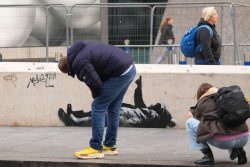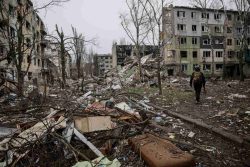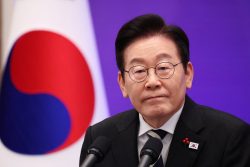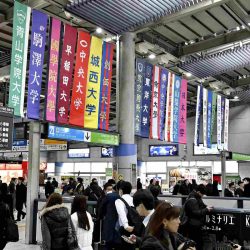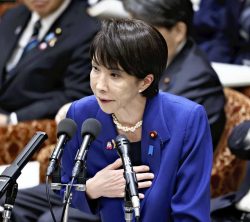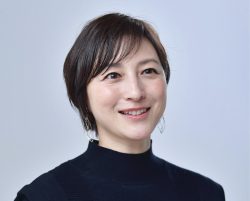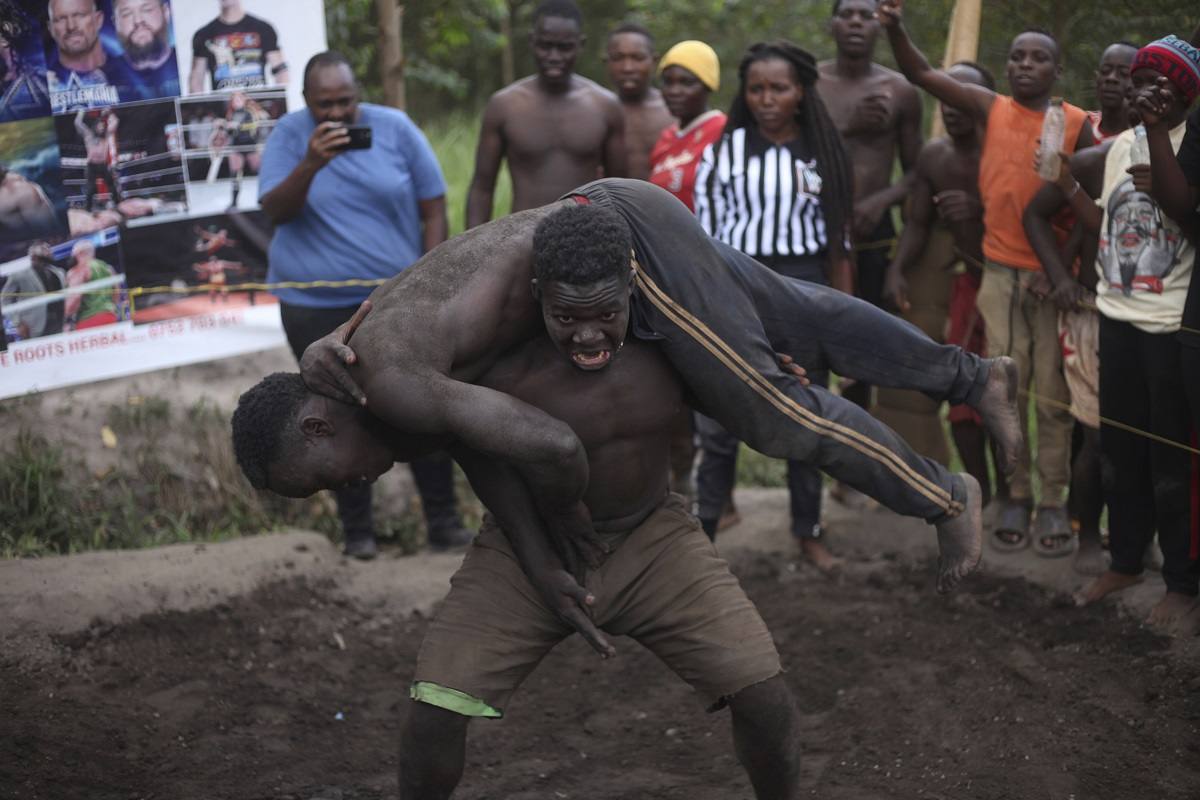
Ugandan youths perform an amateur wrestling tangle in the soft mud in Kampala, Uganda Wednesday, March. 20, 2023.
11:26 JST, April 15, 2024
MUKONO, Uganda (AP) — In a forested area outside Uganda’s capital, a few dozen youth gather around a makeshift ring to watch two amateur wrestlers tangle in the mud.
The training sessions, complete with an announcer and referee, imitate the pro wrestling contests the teens regularly see on television. Ugandan enthusiast Daniel Bumba, known in the wrestling community as Bumbash, hopes that some of these wrestlers, many of them orphans, can do well and long enough to go professional.
It is the glimmer of a dream, with little else in place. The ring is made of bamboo poles lashed together with rope. And yet the youth pay 100,000 shillings ($26) as a commitment fee for a chance to leave the poverty of this farming region. That’s the rough equivalent of 10 days’ work by an average construction laborer, a significant amount.
The 35-year-old Bumba said he has been a wrestling fan since childhood. He became what’s known as a video jockey after college, offering lively commentary and translating WWE matches into the local Luganda language for fellow viewers.
Now he’s a pioneer, known only to a small group of fans in Uganda who follow pro wrestling on TV but aspiring to make it widely popular.
The community Bumba has created, known as Soft Ground Wrestling, has won the attention of some professional wrestlers with its YouTube channel, which broadcasts some bouts.
In February, the American wrestler whose ring name is Jordynne Grace shared a video of a wrestler smashing his opponent against bamboo poles. “What are the chances we could get in touch with them and see if they want a real ring?” she wrote on the social platform X.
Some Americans earlier this year launched a GoFundMe call on behalf of Soft Ground Wrestling. The pitch has raised just over $10,000 and says Uganda’s amateur wrestlers “deserve a chance to showcase their talents to the world.”
In addition to buying a wrestling ring, any cash raised will help Soft Ground Wrestling to “continue renting out their land for the foreseeable future,” it said.
Soft Ground Wrestling pays $250 monthly to use the four-acre property.
“The dream for this place is first of all to create awareness of the game,” Bumba told The Associated Press recently. “I personally want to become a brand ambassador of wrestling in East Africa.”
A first step is a planned wrestling academy, which he sees as a benefit to many children who might otherwise be idle or trapped in crime. Many of the youth in or around the ring in this village 20 kilometers (12 miles) outside the Ugandan capital, Kampala, have long dropped out of school.
Ugandan authorities have taken note, at first with suspicion.
Arthur Asiimwe, co-founder of Soft Ground Wrestling, said security officials visited the community in March and questioned him and Bumba about their objectives. The army officers wanted to know if the group was engaging in “dubious activities” and left after watching some bouts, he said.
Many of the 100 trainees don’t have a clear idea of where wrestling might lead, though they hope to represent Uganda on a global stage. For now, some live in a dorm where they have access to weightlifting equipment. Others come from their homes to wrestle or watch.
They include some aspiring female wrestlers. They said they saw no obstacles to wrestling. There’s a sense of camaraderie with the young men. In a fundraising video posted on YouTube this year, a young woman appeals for support to have “a wrestling ring for the perfect, perfect matches” as male colleagues watch in the background.
Daphine Kisaakye, a young woman who wrestled one recent morning, said she was first exposed to it in 2019 as a domestic worker watching WWE televised fights.
“It was very amazing,” she said.
Bumba has yet to find appropriate training facilities and health insurance for participants. Injury is a concern. He said all those who intend to wrestle receive months of training from him before they are permitted to venture into the ring.
One of the wrestlers, Jordan Ainemukama, said serious injures were rare, but some members have had minor incidents.
“So far I’ve never had an injury, a serious injury … Like you have a shock and then you go to the clinic and then they prepare you like (for) two or three weeks,” he said. “Then you come back.”
Ainemukama said he now knows how to take a landing in the makeshift ring: “Our coach always tells us that, ‘Safety first.'”
"News Services" POPULAR ARTICLE
-

American Playwright Jeremy O. Harris Arrested in Japan on Alleged Drug Smuggling
-

Japan’s Nikkei Stock Average as JGB Yields, Yen Rise on Rate-Hike Bets
-

Japan’s Nikkei Stock Average Licks Wounds after Selloff Sparked by BOJ Hike Bets (UPDATE 1)
-

Japan’s Nikkei Stock Average Buoyed by Stable Yen; SoftBank’s Slide Caps Gains (UPDATE 1)
-

Japanese Bond Yields Zoom, Stocks Slide as Rate Hike Looms
JN ACCESS RANKING
-

Tokyo Economic Security Forum to Hold Inaugural Meeting Amid Tense Global Environment
-

Keidanren Chairman Yoshinobu Tsutsui Visits Kashiwazaki-Kariwa Nuclear Power Plant; Inspects New Emergency Safety System
-

Imports of Rare Earths from China Facing Delays, May Be Caused by Deterioration of Japan-China Relations
-

University of Tokyo Professor Discusses Japanese Economic Security in Interview Ahead of Forum
-

Japan Pulls out of Vietnam Nuclear Project, Complicating Hanoi’s Power Plans



